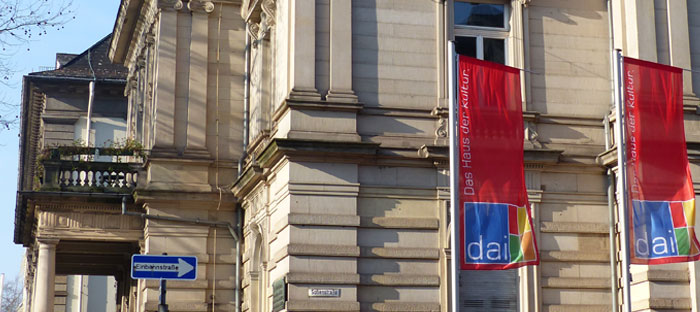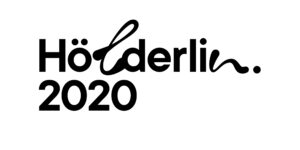“But hark! O heaven! These sounds”
- When poetry becomes music and music becomes poetry
- Heidelberg Symphony Orchestra & Veronika C. Haas
- Concert, Lecture, Literature
Attention: The event at the DAI Heidelberg is sold out. You are welcome to buy a ticket for the online broadcast in advance until 2 hours before the event. The online events are free of charge for members of the DAI Freundeskreis. You have already received an access link by e-mail. If you are a member of the DAI Freundeskreis and have not yet registered your e-mail address, please send us a short e-mail with your membership number to info@dai-heidelberg.de to be added to our distribution list.
That Friedrich Hölderlin was a gifted flutist, passionately played the piano, violin and mandolin, and even composed himself, is hardly known. Scholars tell us little about the dual talent of many music-making poets and poet-musicians such as Hölderlin, Jean Paul, Robert Schumann, E.T.A. Hoffmann or Bettina von Arnim.
The journalist and Germanist Veronika Haas speaks of the fascinating, sometimes astonishing affinities between the arts in the works and lives of individual poet-musicians. At the same time, she leads us – from Hölderlin to Thomas Mann’s musical novel Doktor Faustus – through cultural epochs in which the boundaries between word and sound were fluid, composers wrote songs without words, and in Heidelberg the famous song collection Des Knaben Wunderhorn was printed without a single melody.
On the occasion of the Hölderlin anniversary in 2020, members of the Heidelberg Symphony Orchestra and flutist Karin Geyer will present a special selection of pieces under the direction of Timo Jouko Herrmann: Hendrik Coenraad Steup’s Variations on Paisiello’s Nel cor più non mi sento (“All joys flee me”), a cavatina on which Hölderlin also liked to improvise; a flute concerto – with a cadenza by Friedrich Hölderlin – by the famous blind virtuoso of his day, Friedrich Ludwig Dulon, who said of his highly gifted pupil Hölderlin that the latter “had nothing more to learn from him,” and two works by Franz Ignaz Beck. The Mannheim-born violinist and composer, who as an orphan was a singer in the choir of Heidelberg’s Heiliggeistkirche, was probably experienced by Hölderlin in 1802 as an orchestra leader in Bordeaux.
Program:
Franz Ignaz Beck (1734-1809).
Sinfonia for strings in G minor op. 1, No. 1
- Allegro
- Andante
- Allegro
Friedrich Ludwig Dulon (1769-1826)
Allegro from the Concerto for Flute and Orchestra in G major op. 8
with cadenza by Friedrich Hölderlin
Franz Ignaz Beck
Sinfonia for strings in A major op. 1, no. 3
- Allegro
- Andantino
- Presto
Hendrik Coenraad Steup (1778-1827)
Variations for flute and orchestra in G major on Paisiello’s “Nel cor più non mi sento” op. 1
In the framework of the 6th Literaturherbst
Hint
Attention: The event at the DAI Heidelberg is sold out. You are welcome to buy a ticket for the online broadcast in advance until 2 hours before the event. The online events are free of charge for members of the DAI Freundeskreis. You have already received an access link by e-mail. If you are a member of the DAI Freundeskreis and have not yet deposited your e-mail address, please send us a short e-mail with your membership number to info@dai-heidelberg.de for inclusion in our distribution list.

Ticket Prices (plus fees)
| Regular price | 11,90 € |
|---|---|
| Reduced price | 9,90 € |
| Member price | 6,90 € |
Box Office at a premium

